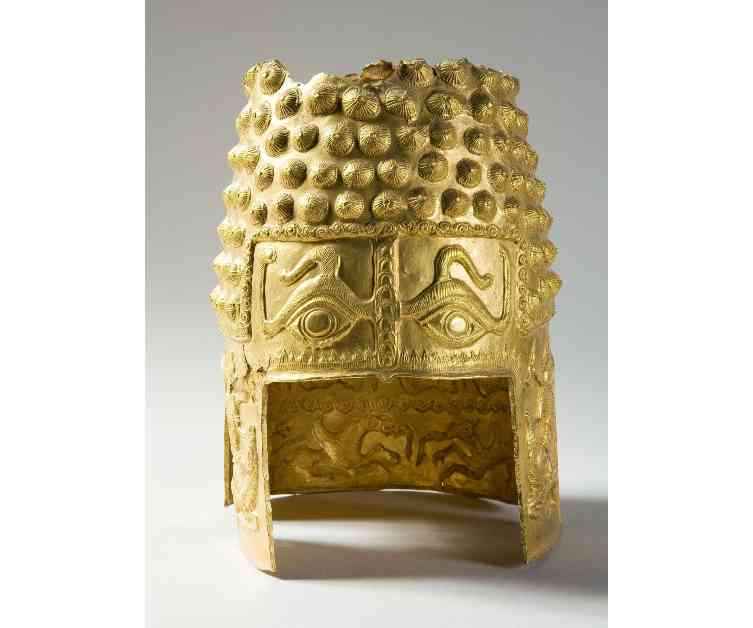Arrest of Three Suspects in Theft of Ancient Gold Romanian Artifacts
Three suspects were apprehended by authorities in North Holland following the theft of four invaluable gold artifacts from the Drents Museum in Assen, the Netherlands. The stolen items, including three gold bracelets dating back to 50 BCE and a Coțofenești helmet from 450 BCE, were on loan from the National History Museum of Romania and part of the museum’s exhibit “Dacia – Empire of Gold and Silver.” The daring heist took place in the dead of night on January 24, leaving the museum reeling from the loss of these ancient treasures.
Explosion at Drents Museum Unveils Brazen Theft
The Dutch police were alerted to the theft when reports of an explosion surfaced around 3:45 a.m. Officers rushed to the scene and discovered that the burglars had used explosives to force their way into the museum, leaving a trail of destruction in their wake. The audacious nature of the break-in sent shockwaves through the local community and beyond, drawing attention to the vulnerability of cultural institutions to such brazen acts of criminality.
Stolen Artifacts Valued at Millions, Prompting Outrage and Legal Action
RTV Drenthe revealed that the stolen Coțofenești helmet was valued at a staggering €4.3 million, while each of the three gold bracelets carried an estimated worth of €500,000. The exorbitant value of these ancient artifacts only served to intensify the shock and dismay felt by museum officials, art enthusiasts, and the general public alike.
The aftermath of the theft saw Dutch police releasing images of one of the suspects on January 29 as part of their ongoing investigation. The Drents Museum remained closed until January 30, citing the need for restoration work, investigation protocols, and preparations for its upcoming exhibition. Meanwhile, the National History Museum of Romania voiced its intent to pursue legal action against the museum for its lack of adequate security measures, which allowed the theft to occur in the first place.
The dire situation prompted Romanian Prime Minister Marcel Ciolacu to issue a scathing rebuke, denouncing the lax security arrangements that had allowed these precious artifacts to be stolen. “Like all Romanians, I am outraged that objects from the Romanian Treasures collection were stolen from a Dutch museum that had no guards,” the Prime Minister declared. His impassioned plea for the swift return of the stolen artifacts to Romania underscored the deep sense of national pride and cultural heritage at stake.
Ciolacu’s remarks highlighted the urgent need for greater vigilance and protection of invaluable cultural artifacts that serve as a testament to a nation’s rich history and legacy. The brazen theft of these ancient artifacts from the heart of Europe has not only exposed the vulnerabilities of museums but also reignited the age-old debate surrounding the ethical responsibility and custodial duty of nations to safeguard their cultural treasures. As the investigation unfolds and the suspects face justice, the world watches with bated breath, hoping for the safe return of these priceless artifacts to their rightful place in history.












